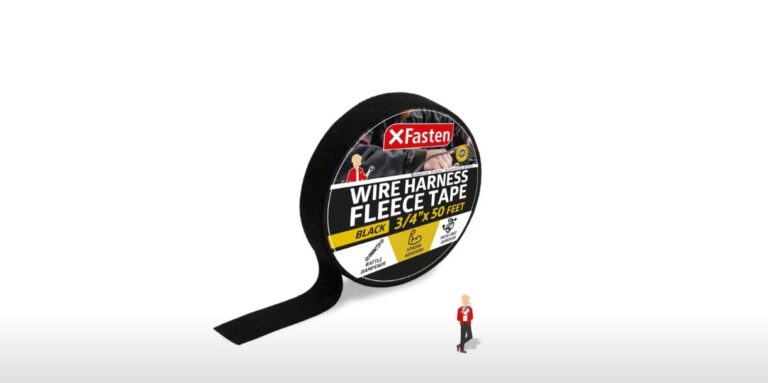Decoding Car Sales Pay: How Car Salesmen Are Compensated in 2026
Ever wondered how car salesmen make a living? It’s far more complex than a simple commission. The world of automotive sales is a dynamic landscape where earnings fluctuate based on numerous factors, from base salaries to intricate bonus structures and the ever-important Finance and Insurance (F&I) products. This article will demystify the compensation of car salesmen, providing a detailed look at how they’re paid in 2024.
I. The Foundation: Base Salary and Commission Structures
Many people assume car salesmen live solely on commissions, but this isn’t always the case. Some dealerships offer a base salary, providing a safety net, while others rely entirely on commissions. The commission itself is typically a percentage of the gross profit from a vehicle sale. This percentage varies widely, ranging from 20% to 35% or more, depending on the dealership and the vehicle. For example, a salesman selling a car with a $5,000 profit margin might earn between $1,000 and $1,750 in commission alone. The “car salesman salary breakdown” reveals that base pay is often smaller than most expect, making the commission and other incentives crucial to their overall earnings. The “typical car salesman commission” will vary wildly between luxury brands, and economy brands.
II. The Power of F&I: Finance and Insurance Earnings
A significant portion of a car salesman’s income comes from F&I products. These include extended warranties, GAP insurance, and other financial services. “How F&I impacts car salesman pay” is a key question for many in the industry. Salesmen earn commissions on these products, often at higher rates than vehicle sales. For instance, selling an extended warranty might yield a commission of 20% to 30% of the product’s price. The ability to effectively sell F&I products is a crucial skill. A real-world example: A salesman who consistently sells F&I products alongside vehicle sales can easily double their monthly earnings. The “F&I income” can be a massive portion of the overall compensation.
III. Bonuses and Incentives: Driving Performance
Dealerships and manufacturers use various bonuses and incentives to motivate sales teams. Volume bonuses reward salesmen for selling a certain number of vehicles within a given period. Model-specific bonuses encourage the sale of particular models. Customer satisfaction bonuses reward salesmen for positive customer feedback. “Car sales bonuses and incentives” are designed to drive performance and achieve specific sales targets. For example, a salesman might receive a $500 bonus for selling 10 vehicles in a month or a $1,000 bonus for selling a specific high-margin model. “Car sales incentives” are a crucial component of the pay structure, and “dealership bonuses” can make or break a month’s earnings.
IV. Factors Affecting Compensation: Beyond the Deal
Several factors beyond the immediate sale influence a car salesman’s income. “Factors affecting car salesman income” include economic conditions, seasonality, and regional variations. During economic downturns, car sales tend to decline, impacting commissions. Seasonality also plays a role, with sales typically peaking during the spring and summer months. “Regional car salesman compensation” varies significantly due to differences in cost of living and market demand. For instance, a salesman in a major metropolitan area might earn more than one in a rural area. “How economic conditions impact car sales pay” is a constant concern, as fluctuating interest rates and consumer confidence directly affect sales.
V. Real-World Examples and Case Studies
To illustrate the complexity of car salesman compensation, consider these anonymous case studies:
- Case 1: A salesman in a high-volume dealership earns a modest base salary but relies heavily on commissions and bonuses. He consistently sells F&I products and meets volume targets, resulting in a substantial monthly income.
- Case 2: A salesman in a rural dealership earns a slightly higher base salary but sells fewer vehicles. He focuses on building long-term customer relationships and generating referrals, resulting in a steady but less volatile income.
- Case 3: A newer salesman, that is struggling to sell F&I products, and is in a slow sales season, is barely making any money. This shows the volatile nature of the work.
These examples highlight the diverse “average car salesman earnings” and the various strategies salesmen employ to maximize their income. “Automotive sales earnings” are not uniform, and many factors influence the final number.
VI. Car Dealership Pay Structures: Variations Across the Industry
“Car dealership pay structures” vary significantly. Large corporate dealerships often have standardized pay plans with clear commission structures and bonus programs. Smaller, family-owned dealerships might offer more flexibility and personalized compensation packages. “How car dealerships pay sales people” is not a one-size-fits-all approach. Some dealerships may offer higher base salaries but lower commissions, while others may prioritize commissions and bonuses.
VII. Tips for Aspiring Car Salesmen: Maximizing Earnings
For those considering a career in car sales, here are some tips for maximizing earnings:
- Focus on building strong customer relationships and providing exceptional service.
- Master the art of selling F&I products.
- Stay motivated and set realistic sales goals.
- Continuously improve your sales skills and product knowledge.
- Network and build a strong referral base.
- Understand the market and adapt to changing economic conditions.
- “Salesman salary” is heavily dependant on the salesman themselves.
VIII. Conclusion:
Car salesman compensation is a multifaceted topic influenced by various factors. Understanding the intricacies of base salaries, commissions, bonuses, and F&I products is crucial for anyone considering a career in automotive sales. By adapting to market conditions, mastering sales techniques, and prioritizing customer satisfaction, car salesmen can achieve financial success. As the “automotive sales” industry continues to evolve, understanding these factors will be more important than ever.
- Polycarbonate Panels For Greenhouse Durable Options For Enhanced Growth 2026 - February 27, 2026
- 10 Best Organic Fertilizers for Winter Crops: The Complete Guide - February 23, 2026
- 10 Best Overwinter Fertilizers for Vegetable Garden in 2026 - February 23, 2026




